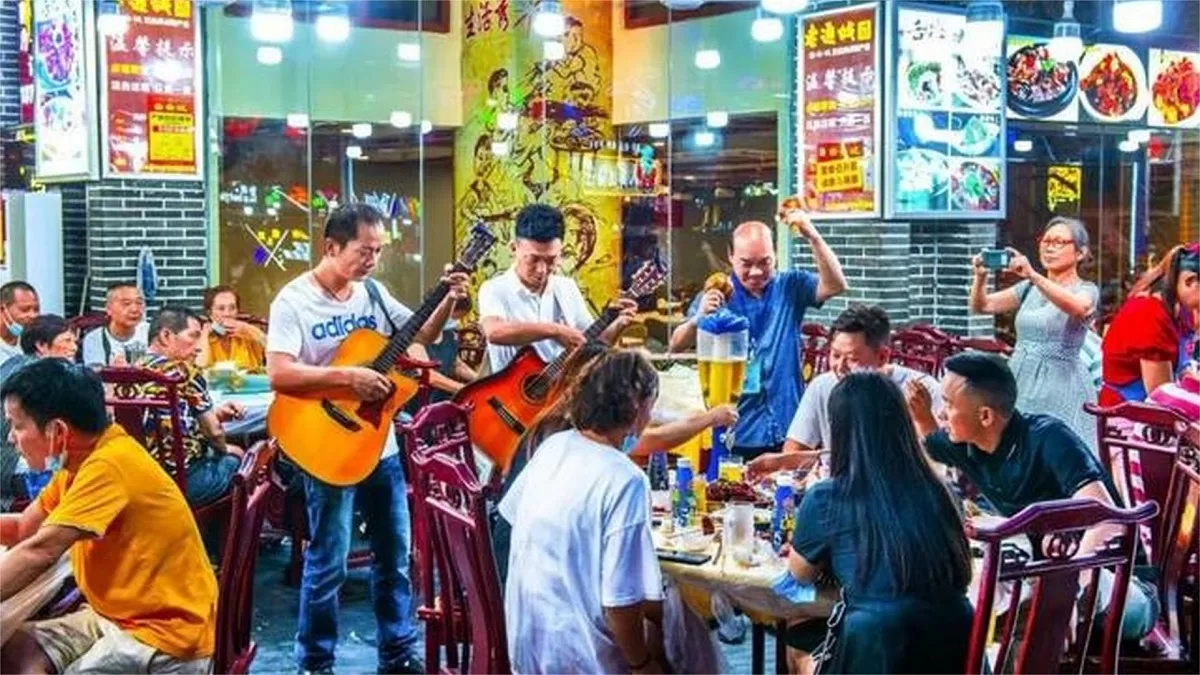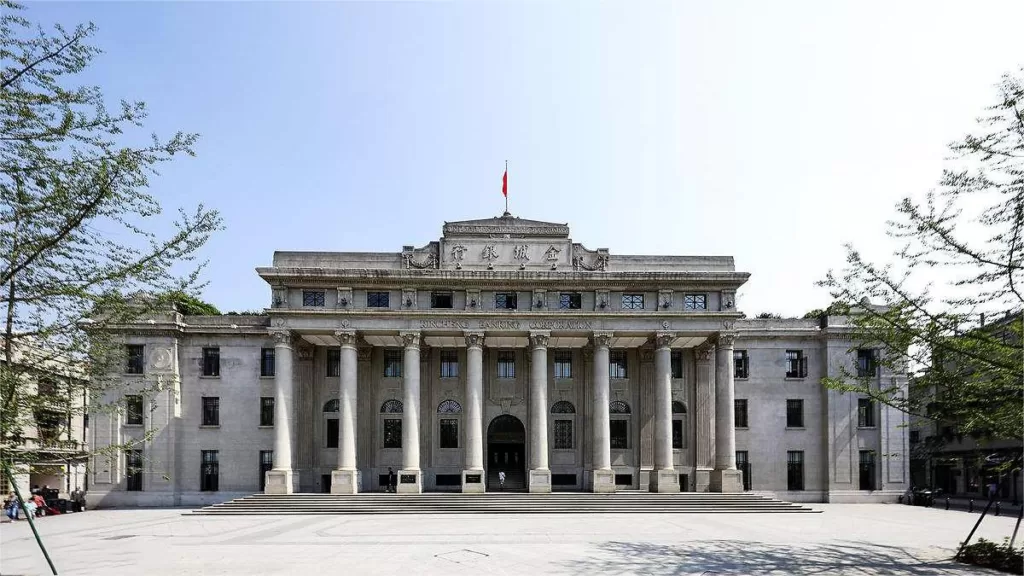Located in the Jiang’an District of Wuhan, Hubei Province, Jiqing Street (吉庆街) is a renowned culinary destination that has earned a special place in the hearts of both locals and visitors. Known as ” Hubu Lane for breakfast, and Jiqing Street for late-night eats,” or “Stroll through Han Zheng Street during the day and explore Jiqing Street at night,” the people of Wuhan cherish these sayings. As night falls, the street comes alive with a dazzling display of lights, bustling crowds, and a wide array of delectable cuisines. It’s the perfect fusion of local flavors and folk performances, especially after midnight when the atmosphere reaches its climax. Jiqing Street has become a melting pot where culinary and folk cultures converge, welcoming guests from near and far and providing a window into Wuhan’s urban culture.
Location and Transportation
Jiqing Street is situated in the Jiang’an District of Wuhan, Hubei Province, nestled between Dazhi Road and Jianghan Road. It shares its proximity with the well-known traditional Wuhan eatery, “Doupi Dawang.” To get there, you can choose one of the following ways:
Bus: Take bus 1, 24, 408, 581, 711, or 727 and get off at Baohua Street Huangshi Road Stop (保华街黄石路站).
Metro: The closest metro station to Jiqing Street is Xunlimen (循礼门) on line 1 and line 2. After getting out of the station from Exit J, walk about 600 meters to the east ro
Highlights of Jiqing Street
Jiqing Street is a place without quiet tearooms or upscale restaurants. Instead, it’s lined with street stalls serving a diverse clientele. Within these stalls, you’ll find a mix of patrons, from university professors to renowned writers, as well as individuals from the arts, sports, and political circles. People from all over China, each with their unique accents, and international visitors can all be seen enjoying the vibrant scene. The street stalls effortlessly blend this face-to-face dining experience with down-to-earth performances, creating an authentic and unpretentious atmosphere.
What sets Jiqing Street apart is its unique privilege as the only place in the country where businesses can set up shop on the road. This is a privilege that has been revived after numerous bans, making Jiqing Street truly special.
This is the essence of Jiqing Street’s cultural marketplace, where face-to-face, open-air dining coexists with informal, down-to-earth entertainment, all soaked in rich local customs and traditions. It’s a distinctive and nationally renowned culinary supermarket that attracts a diverse clientele, from high-ranking officials to everyday citizens and out-of-town tourists. While street stalls have disappeared in many cities, they continue to thrive in Wuhan. During the sweltering Wuhan summer, especially after dinner, people are compelled to leave their homes. They gather in small groups, enjoying the cool breeze, sitting on bamboo mats, savoring edamame and sipping beer.
History of Jiqing Street
In the late 1980s and early 1990s, some industrious individuals brought their bamboo mats and laid them on the street in front of their houses. These mats were adorned with cold noodles, rice noodles, rice, eggs, cold dishes, self-braised beef, beef stomach, beef tendons, pork intestines, chicken, and duck. Nearby, a small coal stove sizzled with home-cooked dishes. A few tables and chairs were set up, and people sat down to enjoy a meal. This became a daily source of income for many, helping them make ends meet. Later, another wave of people arrived and rented storefronts, opening small shops, some as small as 10 to 20 square meters. They placed a few tables on the street, offering dishes that appealed to the taste of Wuhan locals. By the early 1990s, these businesses expanded, occupying larger storefronts. Around 1933, Jiqing Street reached its peak, forming a substantial market that extended beyond Jiqing Street itself to include nearby trading streets, Ruixiang Road, and Dazhi Road, and the bustling food market has extended into today.












After a day’s walk in Wuhan, this street can satisfy a foreigner’s basic needs for Wuhan snacks. – [四季美 (Sijimei)]: The soup dumplings are as good as ever. I like the original flavor the most, but the crab roe and tomato flavors are also good. – [老万成 (Laowancheng)]: The plum soup was a pleasant surprise, very delicious. – [谈炎记 (Tanyanji)]: The dumplings are similar to wontons we usually eat. The taste is good, the soup is delicious and fresh, and… Read more »